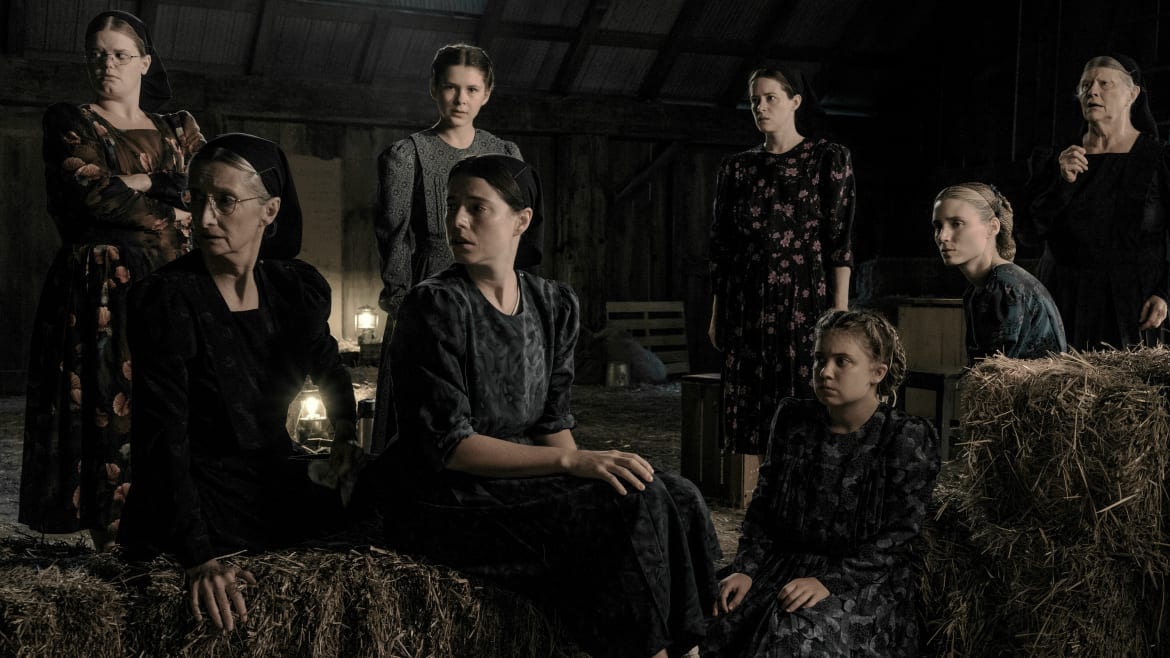Michael Gibson/United Artists
An adaptation of Miriam Toews’ 2018 novel of the same name, which itself was inspired by real events, Women Talking is a story about misogynistic tyranny and terror that recalls The Handmaid’s Tale—except for the fact that it takes place not in a dystopian world but, depressingly, our own. Set in a cloistered Mennonite community wracked by male monstrousness, writer/director Sarah Polley’s first fictional feature since 2011’s Take This Waltz is a wrenching drama about freedom, faith, abuse, autonomy, responsibility and survival, all of which it tackles with patience and poignancy. There’s weight to its stillness, heartbreak in its communal suffering, and hope in its belief in the power of transformation and, also, in people’s capacity to act.
Collaborating with Rooney Mara, Claire Foy, Jessie Buckley and Frances McDormand, Polley provides no context for Women Talking’s time period or geography, which allows her to fixate on her scenario’s unique specifics while simultaneously positioning the material as representative of larger contemporary concerns. Driven by a young girl’s narration to an unborn child, the film involves a Mennonite enclave at a moment of pivotal calamity: the rape of a four-year-old girl by a young male community member. This is recounted in jarring flashes, including the sight of the child’s mother Salome (Foy) trying to exact brutal vengeance against the perpetrator, and concludes with word that the men have departed for the city to bail out the accused kids. In the meantime, this population’s women vote on whether to stay, to fight, or to flee. When no consensus is reached, a select group gather in a barn hayloft to determine the best course of action.
The title of Women Talking is not misleading; its drama is of a predominantly conversational nature. The women’s 12 Angry Men-esque debate is led by optimistic and open-minded Ona (Rooney Mara), furious Salome, and bitter and fearful Mariche (Buckley), and it’s complicated by everyone’s shared history of systematic subjugation. None of these females can read or write—or have been educated about (or exposed to) the wider world. Instead, they’ve been indoctrinated to believe that reaching the Kingdom of Heaven is their primary goal, and can only be achieved by obeying male church elders. They have, for all intents and purposes, been born and bred to remain docile, ignorant, and servile. More horrifying still, they’ve been taught to grin and bear it when they awaken in the morning with bruises on their bodies and blood dripping from beneath their nightgowns courtesy of tranquilizer-facilitated rape. Generation after generation, this has been their fate, thus making Salome’s tragedy—and resultant revolt—a traumatic rupture in the status quo.

